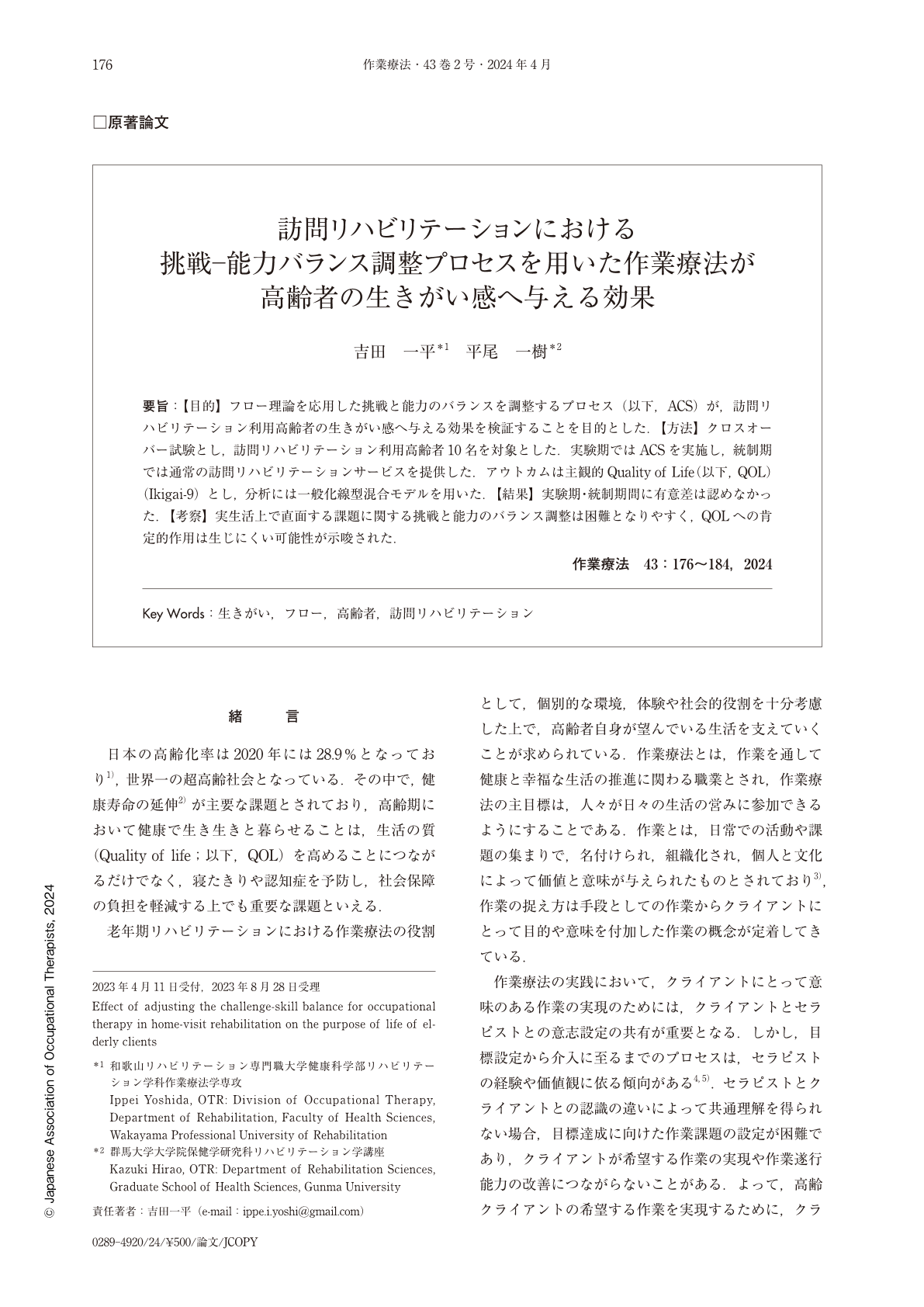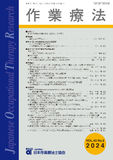Japanese
English
- 販売していません
- Abstract 文献概要
- 1ページ目 Look Inside
- 参考文献 Reference
要旨:【目的】フロー理論を応用した挑戦と能力のバランスを調整するプロセス(以下,ACS)が,訪問リハビリテーション利用高齢者の生きがい感へ与える効果を検証することを目的とした.【方法】クロスオーバー試験とし,訪問リハビリテーション利用高齢者10名を対象とした.実験期ではACSを実施し,統制期では通常の訪問リハビリテーションサービスを提供した.アウトカムは主観的Quality of Life(以下,QOL)(Ikigai-9)とし,分析には一般化線型混合モデルを用いた.【結果】実験期・統制期間に有意差は認めなかった.【考察】実生活上で直面する課題に関する挑戦と能力のバランス調整は困難となりやすく,QOLへの肯定的作用は生じにくい可能性が示唆された.
The purpose of this study was to examine the effect of the Adjusting the Challenge-skill balance (ACS) process, which applies flow theory (flow model), on the subjective quality of life of elderly people who use home-visit rehabilitation. The research method was a crossover study, and 10 home-visit rehabilitation users were included in the study. In the experimental phase, ACS was implemented to meet the lifestyle and activity goals related to the care plan being used, and in the control phase, normal in-home rehabilitation services were provided. The primary outcome was subjective quality of life (Ikigai-9), and a generalized linear mixed model (Bayesian estimation method) was used for analysis. Results showed no significant difference between the experimental and control periods (difference: 0.87±0.48, 95% CI; -0.01-1.81). As a result, it can be difficult to balance challenges and skills when implementing ACS for real home life problems. In other words, it was suggested that it would be difficult to share goals and carry out the goal achievement process according to the CL situation, and that it might not have a positive impact on subjective QOL.

Copyright © 2024, Japanese Association of Occupational Therapists. All rights reserved.


